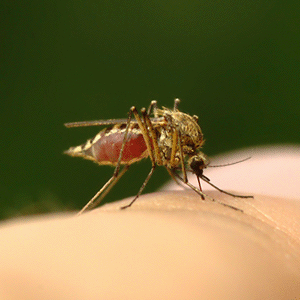For Once, Scientists Encourage Mosquito Breeding
Friday, September 26th, 2014September 26, 2014
In an odd twist, Brazilian scientists from the Fundação Oswaldo Cruz (Fiocruz) Foundation and Brazil’s Ministry of Health are releasing thousands of specially modified mosquitoes in a region around Rio de Janeiro in an effort to reduce and perhaps even eliminate the spread of mosquito-borne dengue fever. For the program to work, the special mosquitoes must breed and eventually become the majority population in the region. By reducing the incidence of this debilitating mosquito-borne disease through natural methods, it may allow nations to reduce their widespread use of pesticides against mosquito populations. The release is the first of its kind to take place in a country in the Americas. Similar releases of specially-modified mosquitoes have been conducted in Australia, Vietnam and Indonesia.

Mosquites transmit a number of illnesses to humans, including dengue fever, malaria, and West Nile virus. (© Dmitry Knorre, Dreamstime)
Dengue fever, also called breakbone fever, causes headaches, eye aches, and severe pain in the muscles and joints, in addition to a high fever. It is caused by a virus transmitted only by mosquitoes of the species Aedes aegypti. Dengue is endemic (exists permanently) in Brazil and many other regions of the tropics and subtropics. Global health officials estimate that about 390 million people get dengue each year. Although it is seldom fatal, the debilitating illness is an enormous burden on the economy and health care systems of many developing countries. There is no known cure for the disease.
In a Brazilian laboratory, scientists from Oxitec, a British biotechnology corporation, infected Aedes mosquitoes with a parasitic microbe called Wolbachia. This common bacteria infects the cells of a mosquito, where it prevents the dengue virus from multiplying. The microbe acts like a vaccine against the dengue virus in the mosquitoes and, once infected with Wolbachia, the insects cannot transmit the disease to humans when they bite. Wolbachia also affects mosquito reproduction. Female mosquitoes usually mate only once in their lifetime. If a male mosquito infected with Wolbachia mates with an uninfected female, the eggs do not develop, reducing the entire mosquito population. When an infected female mates, her offspring will carry Wolbachia, ensuring future mosquito generations of her line will be immune to Dengue.
While it is impossible to eliminate all of the Aedes aegypti mosquitoes, scientists hope that surviving populations will be incapable of transmitting dengue to people. They believe it will take as long as 2 years to see if the program is effective. If successful, the mosquito program may also be used to help control other diseases transmitted through the bite of Aedes aegypti, including yellow fever or malaria.
Additional World Book articles:
- Blood Feeders: Real Life Vampires (a Special report)
- Overpopulation and the Threat of Disease (a Special report)


